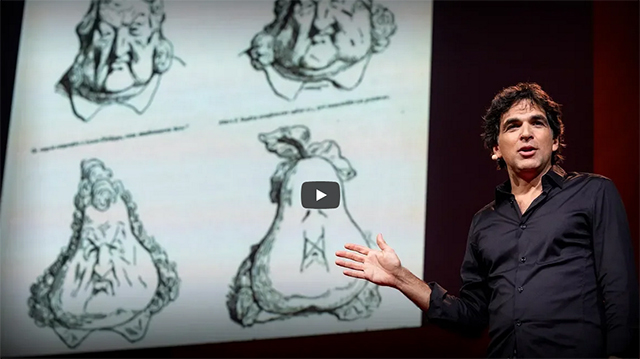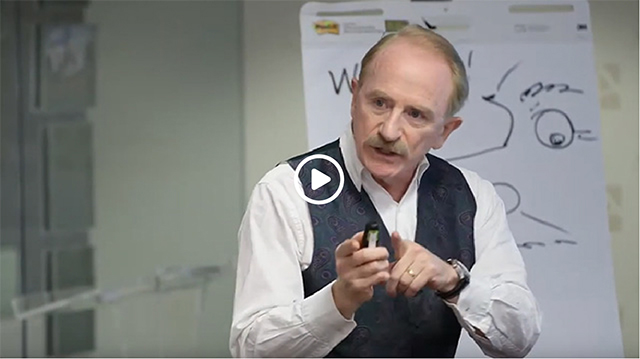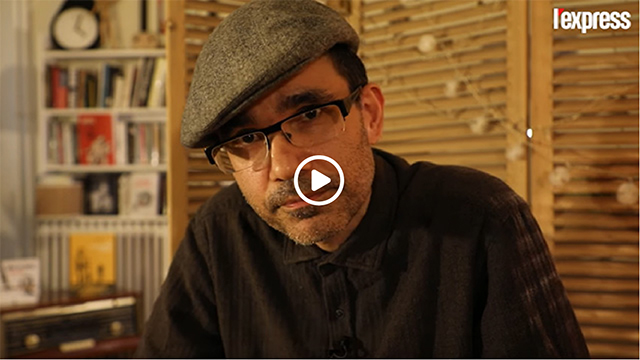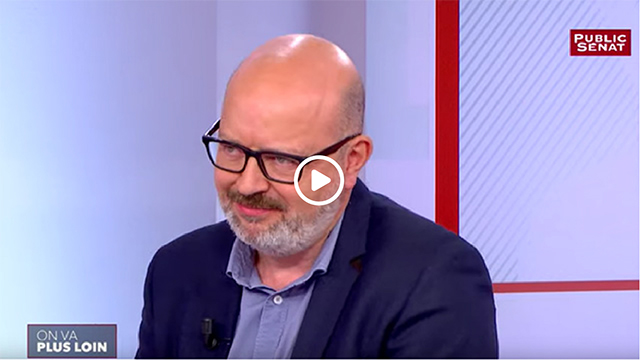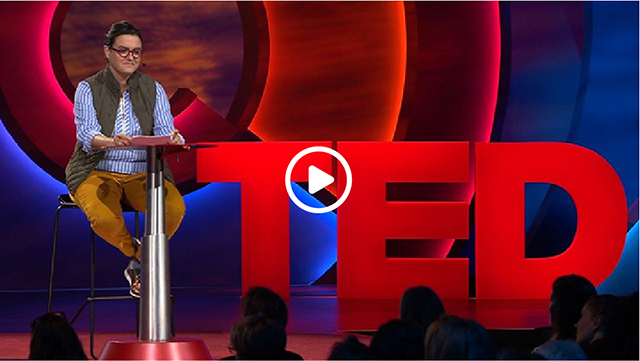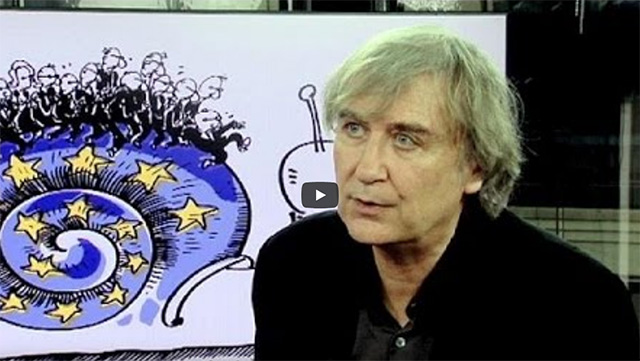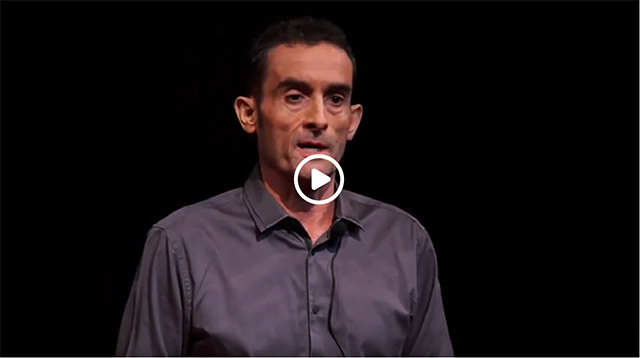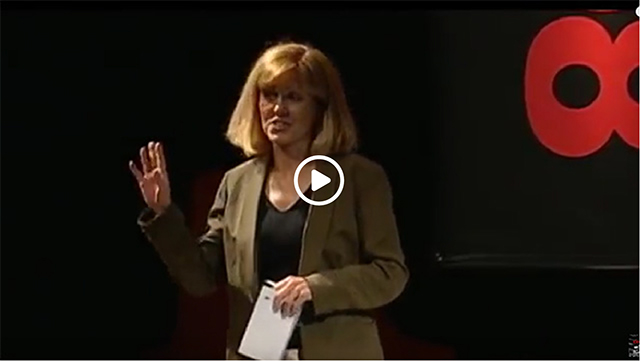Cartoonists on Democracy
Patrick Chappatte is a Swiss-Lebanese press cartoonist. For over 20 years his political cartoons have been published by the New York Times, Der Spiegel, Le Temps, Le canard enchaîné, to name just a few, and his cartoons are re-printed by media outlets worldwide. He has authored comic books and animation strips on political issues covering wars, human rights, poverty, deprivation and the freedom of speech. He talks about the paramount importance of satire in a democracy and about the New York Times' controversial decision in 2019 to end the publication of syndicated cartoons.
Official site Twitter: FR EN
Kevin "Kal" Kallaugher (USA) - Politics through his Eyes
Kevin Kallaugher is an award-winning cartoonist for The Economist and the Baltimore Sun. He is the first resident cartoonist of The Economist in its 148 year history. KAL's work has been syndicated in more than 100 publications worldwide, including Le Monde, Der Spiegel, Pravda, Krokodil, Daily Yomiuri, The International Herald Tribune, The Washington Post, New York Times, The New Yorker, Time, Newsweek and U.S. News & World Report. His work was exhibited at the Tate Gallery in London and the Library of Congress in Washington, D.C. In this brief talk he explains the mission of a political cartoonist and he takes the audience through the journey of producing a political cartoon.
Official site Twitter
Mana Neyestani (Iran, France) - Dessiner pour faire avancer la democratie
Mana Neyestani is an Iranian cartoonist living in France. He started his career in 1998 as a cartoonist for Iranian reformist newspapers including Zan, Asr-e Azadegan, Sobhe Emrooz, Mosharekat, Azad, Neshat and Aftab-e Emrooz. Since 2006 he lives in exile and, through his work, continues to support the fight for progress and democracy in Iran. His work is published internationally by political, cultural and economic media outlets. Mana talks about his path towards becoming a political cartoonist, about work in exile and about the tragedy to which different interpretations of cartoons can lead.
Instagram
Xavier Gorce (France) - La caricature politique en danger
Xavier Gorce is a French cartoonist, illustrator and painter. He works since 1986 as an independent press cartoonist and his iconic comic strips Les Indégivrables were featured daily in the French newspaper Le Monde. His cartoons often approach politically sensitive subjects: the wearing of the burka, the yellow vests, the Greek referendum during the financial crisis. He talks about the language of cartoonists, about recognising press cartoons as a fundamental human right along with the right to free expression, and about the impact of social media on cartoonists' work.
Official site Twitter
Rayma Suprani (Venezuela, USA) - Dictators hate political cartoons, so I keep drawing them
Rayma Suprani is a Venezuelan cartoonist. Her cartoons were published daily for almost 20 years by the largest Venezuelan newspaper El Universal until 2014, when she was fired over their critical stance towards the government. After repeated threats, due to the political content of her cartoons, she had to take up life in exile. She continues to publish her work on social media and to exhibit world-wide. In her TED Women appearance she talks about the role of cartoons as a major communication chanel, as a force for democracy and against authoritarianism and about the impact of cartoons.
Official site
Jean Plantureux "Plantu" (France) - La caricature au service de la démocratie
Jean Plantureux or Plantu, is a French cartoonist, illustrator and artist. His cartoons were published in Le Monde since 1972, in L'Express since 1991 and in the magazine Phosphore. In 2006, together with the former UN Secretary General Kofi Annan, he founded Cartooning for Peace , an international organisation uniting more than 200 cartoonists, which defends the freedom of expression of press cartoonists and organises international exhibitions, conferences and educational activities. He discusses cartooning and democracy in the context of the release of Caricaturistes - Fantassins de la démocratie, a documentary about 12 cartoonists around the world who risk their lives to defend democracy.
Twitter
Damien Glez (Bourkina Fasso) - Dire l'indicible
Damien Glez is a press cartoonist, columnist and screenwriter living and working in Bourkina-Fasso. In 1991 he founded the weekly satirical magazine "Journal du jeudi" for which he was editorial director for 25 years. His cartoons and comic strips are published throughout the world by Le Monde, Libération, Courrier International, Afrique Magazine and World Policy Journal and by numerous publishing houses. In his presentation, he takes the audience on a journey that demonstrates the power of illustration in contrast to what words can afford: the power to avoid, to suggest, to circumvent, to project, to enhance and to change and, above all, the power to be universal.
Official site
Ann Telnaes (USA) - The influence of the cartoonist
Ann Telnaes is a Pulitzer-prize winning editorial cartoonist for the Washington Post. She works in various mediums - animation, visual essays, live sketches and traditional print. She has published political cartoon books on Dick Cheney and Donald Trump and her work has been exhibited in Paris, Jerusalem and Lisbon. She has had a long-standing career in animation, starting with Walt Disney Imagineering and including studios in Los Angeles, New York, London and Taiwan. She discusses the mission of the editorial cartoonist and talks about "drawing lines" around subjects and in rendering and expressing editorial contents.
Official site Twitter
